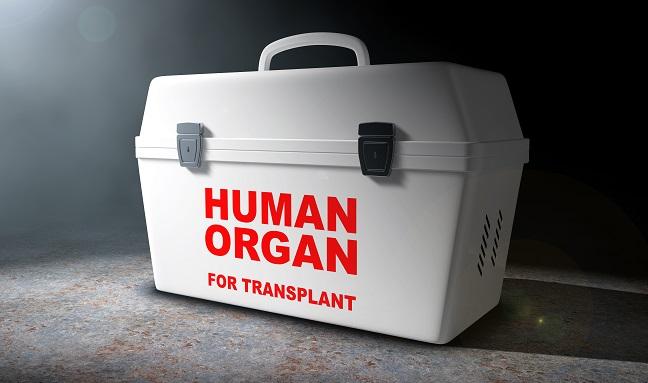Heart Transplants From Overdose Deaths Are Soaring, With Promising Results
It’s not an “ideal or sustainable” solution to organ shortages, say researchers, but a tragic rise in overdose deaths since 2000 has an unlikely silver lining.

The number of heart donors who died from drug overdoses has soared since 2000, and according to new data, patients who receive these organs are just as likely to have successful transplants as those who receive hearts from donors who died of medical causes or trauma.
Five-year survival following transplantation also is comparable between groups.
“Organ donation after overdose death has increased dramatically in parallel with the opioid epidemic in the United States,” lead author Christine M. Durand, MD (Johns Hopkins University School of Medicine, Baltimore, MD), and colleagues write. “Although this is not an ideal or sustainable solution to the organ shortage, use of overdose-death donor organs should be optimized.”
Published online yesterday in the Annals of Internal Medicine, the study included data from 337,934 kidney, liver, heart, and lung transplant recipients treated at 297 US centers between January 2000 and September 2017. Donors who died from overdoses increased from 1.1% of the overall donor pool to 13.4% over the study period, and they were more likely to be white, aged 21 to 40 years, infected with hepatitis C, and at increased infectious risk.
The number of heart donors who died from overdoses was close to zero in 2000, and it increased to 454 in 2016. For heart recipients who received new organs from donors who died of a drug overdose, trauma, or medical conditions, the unadjusted 5-year survival rates posttransplant were 79.2%, 77.5%, and 74.4%, respectively. In fact, standardized graft survival was slightly higher for overdose-death donors using propensity score–weighted standardized risk differences compared with organs that came from donors who died from trauma (1.9% higher) or medical causes (2.6% higher).
Importantly, 117 hearts (1.0%) recovered from overdose-death donors were subsequently discarded, and this rate of discard was slightly higher than that seen with organs from trauma-death donors (0.6%) and slightly lower than those from medical-death donors (1.5%).
Overdose-death donors were more likely than those who died from trauma and less likely than those who died from medical causes to have hypertension, diabetes, or previous MI. Also, a higher percentage of overdose-death donors (18.3%) were infected with the hepatitis C virus than those who died from trauma (3.2%) or medical causes (4.1%). Moreover, the prevalence of hepatitis C-infected donors has risen steadily among overdose-death donors since 2000.
The ‘Silver Lining’
According to Eiran Gorodeski, MD (Cleveland Clinic, OH), who commented on the study for TCTMD, the “silver lining” is that the number of heart transplants has increased over time. However, “the total number of transplants is still just a drop in the bucket of what the need is,” he added, noting that between 100,000 and 300,000 people in the US are believed to have advanced heart failure and therefore could theoretically benefit from a heart transplant, but only about 2,700 receive them.
“There's a tremendous need to increase the donor pool, and many people have been working on this very hard,” Gorodeski said. One avenue to do this, he suggested, would be to accept “more donors who previously were considered too high risk to take, especially ones with infections like hepatitis C.”
Within the last few years, he explained, the number of offers of organ donations from donors with hepatitis C “has really skyrocketed.” To take advantage of this, his institution has created algorithms to accept these donations, programs to educate patient recipients about the risks involved, and treatment plans to address the inevitable hepatitis C that develops posttransplantation.
“Our experience here has been that many patients agree and they consent that if a hep C donor ever becomes available, they consent to take it,” Gorodeski said. “A lot of people on the heart transplant list just feel so poorly because of advanced heart failure that any opportunity to get a heart transplant is embraced.”
A lot of people on the heart transplant list just feel so poorly because of advanced heart failure that any opportunity to get a heart transplant is embraced. Eiran Gorodeski
In an accompanying editorial, Camille Nelson Kotton, MD (Massachusetts General Hospital, Boston), makes a similar point. “We should address whether ongoing social bias and stigma about issues surrounding drug overdose, HIV infection, and hepatitis C virus infection may influence clinician and patient decision-making with regard to overdose-death donor organs,” she writes. “The transplant community should understand these new data and forge ahead toward better transplant outcomes for more recipients.”
Gorodeski said he encourages all heart transplant centers around the country to “have open conversations with people on the waiting list about the fact that there's a higher chance these days that they may get offers from donors who died from overdoses.” Further, institutions that might not yet be accepting organs from these donors “should really look at this paper very closely and maybe liberalize their criteria, because what we're seeing here is that the donor pool from these types of donor deaths has increased, number one, and number two, it's not dangerous,” he advised.
Yael L. Maxwell is Senior Medical Journalist for TCTMD and Section Editor of TCTMD's Fellows Forum. She served as the inaugural…
Read Full BioSources
Durand CM, Bowring MG, Thomas AG, et al. The drug overdose epidemic and deceased-donor transplantation in the United States: a national registry study. Ann Intern Med. 2018;Epub ahead of print.
Kotton CM. Every cloud has a silver lining: overdose-death donors in organ transplantation. Ann Intern Med. 2018;Epub ahead of print.
Disclosures
- Durand reports receiving support from the Division of Intramural Research, National Cancer Institute.
- Kotton reports receiving personal fees from Merck, Astellas, Qiagen, Oxford Immunotec, Shire, and Roche and grand support from Oxford Immunotec.
- Gorodeski reports no relevant conflicts of interest.


Comments